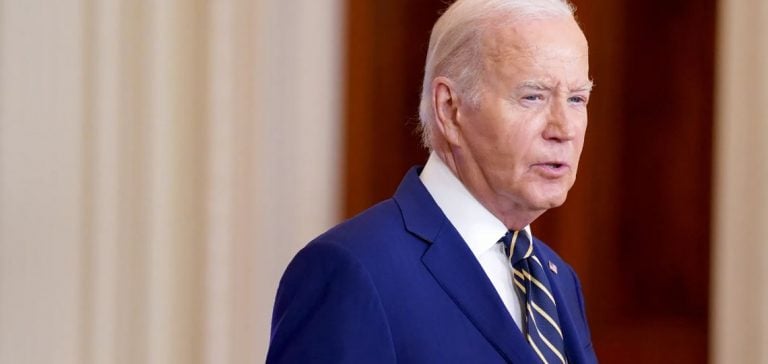The latest sanctions imposed by the United States against Iran, in response to its missile attacks on Israel, are expected to tighten crude flows to China and reduce the competitiveness of these barrels due to a shortage of ships and higher shipping costs in the near term, Chinese refinery and trade sources told S&P Global Commodity Insights on October 14.
These sanctions, along with worries about further measures if the Iran-Israel conflict escalates, could create prolonged uncertainty for China’s independent refiners, the biggest customers for Iranian crude, leading them to consider alternative supply options.
Extension of Sanctions and Impact on Maritime Transport
Washington broadened the scope of its sanctions on October 11 to include anyone operating in the Iranian petroleum and petrochemical sectors. The US Treasury and State Departments also utilized other sanction authorities to designate 23 vessels and 16 entities involved in the ghost fleet facilitating Tehran’s petroleum trade.
“Most of those vessels shuttled to China with Iranian barrels,” said a Shandong-based trade source with knowledge of the Iranian flows to China.
A Shandong-based independent refiner said sanctions complicate financing for affected cargoes, as “no bank will dare to handle cargoes shipped by a sanctioned vessel.”
In September, about 30 vessels loaded with Iranian crudes were discharged for China’s independent refineries, according to Commodity Insights estimates based on various market sources. Among these, six vessels were on the latest US sanctions list.
Logistical Challenges and Increased Shipping Costs
“With 23 vessels being sanctioned at one go, it is going to be challenging for dealers to find alternative carriers and redo administration works,” said Sijia Sun, associate director for downstream research and analysis at Commodity Insights.
“The sudden reduction in vessel availability to carry Iranian crudes could lead to two outcomes — first, supplies to China will fall short, and second, freight rates for vessels for China will rise.”
Chinese independent refiners in Shandong have been the primary buyers of Iranian crude oil since sanctions were reimposed on Iran in 2018. These independent refiners largely depend on sanctioned crudes from Iran, Russia, and Venezuela, as they are usually cheaper than non-sanctioned alternatives. Transactions are typically conducted in Chinese Yuan via local banks.
Reduction of Flows and Future Forecasts
In September, 1.57 million barrels per day (b/d) of Iranian crudes flowed into China, down 5.8% from a record high of 1.67 million b/d in August, according to Commodity Insights’ estimates. However, September volumes remained above the previous high of 1.43 million b/d in October 2023.
Shipping companies might resort to ship-to-ship transfers in international waters, moving barrels from newly sanctioned vessels to others not on the list, some sources said.
Effects on the Market and Refinery Margins
Russia has remained China’s top crude supplier so far in 2024, with 2.16 million b/d deliveries over January-September, accounting for a 19.6% market share, data from China’s General Administration of Customs showed.
Iranian crude oil mainly sails from Iran to Malaysia where it is renamed and reloaded as Malaysian-origin crude oil.
But few Iranian cargoes have headed for Malaysia since early October amid the conflict between Iran and Israel. “The flow is set to fall further in a week or two, capping the arrivals to the Shandong market,” the Shandong-based trade source said.
Crude loadings from Iran averaged 816,244 b/d in the week to October 9, according to preliminary and estimated tanker movements in S&P Global Commodities at Sea. Iran normally ships seven to ten crude cargoes each week, with exports averaging 1.7 million b/d so far this year, up from 1.1 million b/d in 2022.
Iran’s crude production has increased despite sanctions on its energy industry, with output hitting 3.23 million b/d in September, the highest since October 2018, the latest Platts survey from Commodity Insights showed.
Iranian Light cargoes were offered at discounts of around $3.5 per barrel to $4 per barrel against ICE Brent futures on a DES Shandong basis as of October 14, narrowing from discounts of $4 per barrel to $4.5 per barrel seen at the end of September but stable compared with last week, according to market sources.
Weak Margins and Tight Import Quotas
Besides the logistical challenges following the new US sanctions, weak refining margins and tight crude import quotas would also reduce crude feedstock demand from independent refineries, Sun said.
Independent refiners’ margins in Shandong for processing imported crudes slumped 63.1% week on week to Yuan 115 per metric ton ($2.12 per barrel) as of October 10, because of rising crude benchmark prices in the international market, according to local information provider Oilchem.
The refineries are estimated to have about 1.44 million b/d of crude import quotas for the fourth quarter, falling about 400,000 b/d from average crude inflows of 1.84 million b/d over January-September, according to Commodity Insights.
Sun said the upcoming US election could alter US policy on Iran. “It could lead to tighter or relaxed controls on the Iranian barrels in the future,” she said.






















